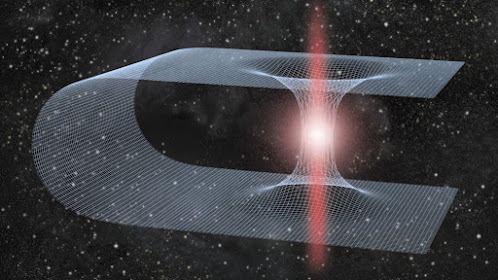Introduction: The allure of time travel
The concept of time travel, a staple of science fiction, has captured the human imagination for centuries. From "The Time Machine" by H.G. Wells to the iconic Back to the Future series, time travel is a constant theme. However, beyond the boundaries of literature and cinema, the concept of time travel is deeply rooted in the complex structure of theoretical physics, which delves into the nature of reality itself.
The concept of time travel, a staple of science fiction, has captured the human imagination for centuries. From "The Time Machine" by H.G. Wells to the iconic Back to the Future series, time travel is a constant theme. However, beyond the boundaries of literature and cinema, the concept of time travel is deeply rooted in the complex structure of theoretical physics, which delves into the nature of reality itself.
To understand the perspective of time travel, we need to delve into the theoretical basis of modern physics. Albert Einstein's general theory of relativity lays the foundation for understanding the curvature of spacetime, where massive objects bend the structure of spacetime itself. This curvature could in principle open up pathways that connect distant points in time and space.
Warping Space-Time: Wormholes and Beyond
Among the most interesting theoretical constructs are wormholes, hypothetical shortcuts in space-time that could potentially connect different points in time and space. However, the concept of wormholes comes with formidable challenges, including their stability, the need for exotic matter with negative energy density to keep them open, and the risk of paradoxes.
Closed time curves and tilt cylinders:
Another avenue to explore is the possibility of closed time curves and Tipler cylinders, proposed by physicist Frank J. Tipler. These concepts allow for the creation of rotating cylinders that could theoretically cause time loops. However, both ideas raise questions about the plausibility of their existence and their compatibility with the laws of physics.
Feasibility and technological challenges:
While these theoretical frameworks are intellectually captivating, the practical realization of time travel remains elusive. Many of the proposed methods require technologies and resources far beyond our current capabilities. Concepts like negative energy density, stable wormholes, and faster-than-light travel present us with daunting technological, engineering, and resource-related obstacles.
Time paradoxes are among the most interesting and mysterious aspects of time travel. "Grandfather's Paradox" raises questions about the consequences of changing the past. If a time traveler were to prevent his own grandparents from meeting, the resulting paradox challenges the very structure of causality. Similarly, the "bootstrap paradox," where information or objects are sent back in time and become stuck in a loop with no clear origin, continues to confound physicists.
Ethical dilemmas and historical changes:
The act of changing the past raises deep ethical considerations. The "butterfly effect" suggests that even small changes in the past could lead to dramatic shifts in the present and future. Time travelers could inadvertently influence historical events, influence outcomes, or even shape the course of civilization. This raises questions about moral responsibility and the potential for unintended consequences.
One approach to solving time paradoxes is the concept of alternative timelines. Paradoxes can be avoided by deviating timelines when making changes in the past. This idea resonates with multiverse theories, which propose the existence of multiple parallel universes, each with its own distinct timeline. However, these theories also generate debate and philosophical inquiry.
Protecting Temporal Causality: The Novikov Principle:
"Novik's principle of self-consistency" offers a possible solution to time paradoxes. This principle assumes that the laws of physics themselves prevent events that would lead to inconsistencies or paradoxes. It suggests that time travelers, even if unintentionally, would be forced to act in a way that preserves the integrity of causality.
Interaction with future and past civilizations:
The prospect of meeting civilizations from different time periods brings a range of possibilities and challenges. Encountering a technologically advanced future civilization could offer insight, but also pose risk if their knowledge and intentions are not aligned with our current society. Conversely, encounters with civilizations from the past may require careful consideration of our role as temporary visitors.
Current scientific understanding and an uncharted future:
Although time travel remains a speculative and unproven concept, it continues to captivate the minds of physicists, philosophers, and the public alike. Research on the cutting edge of quantum mechanics, the study of black holes, and the very nature of spacetime could potentially yield insights that either challenge or support the feasibility of time travel.
Conclusion: Reflections on the tapestry of time
In the great tapestry of scientific inquiry, time travel is a complex and multifaceted thread. Its magic lies not only in its presence in the realms of science fiction, but in its reflection of humanity's eternal quest to unravel the mysteries of the universe. While time travel remains uncertain, the pursuit of understanding its theoretical underpinnings, feasibility, and paradoxes enriches our understanding of the very nature of time, causality, and the universe.
"Time travel used to be thought of as just science fiction, but Einstein's general theory of relativity allows for the possibility that we could warp space-time so much that you could go off in a rocket and return before you set out." - Stephen Hawking




.png)


0 Comments